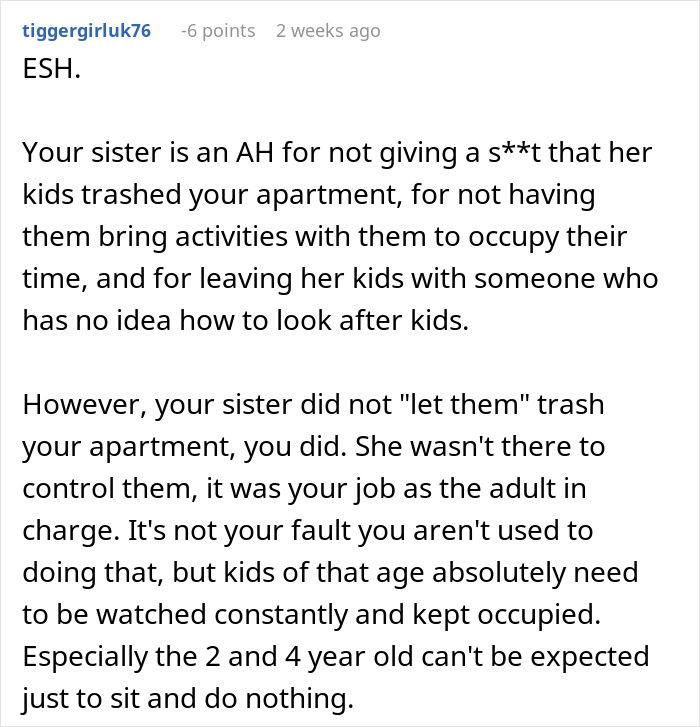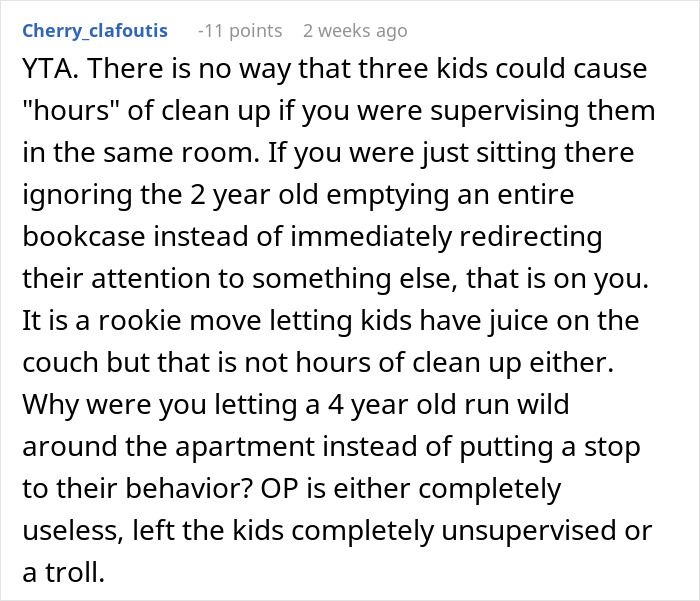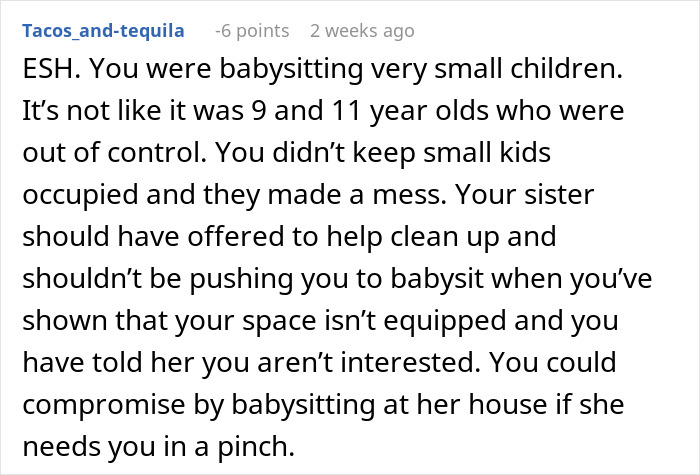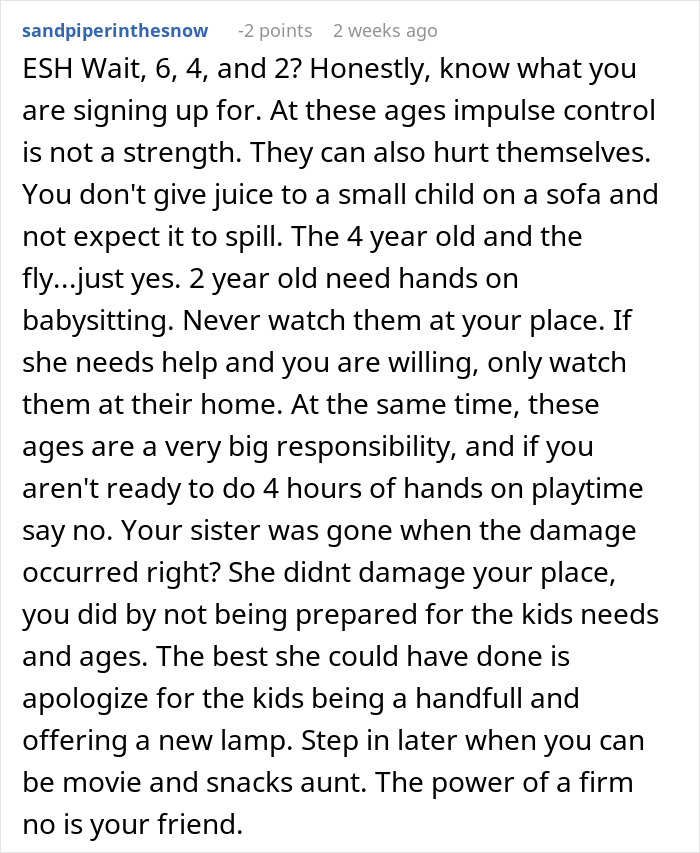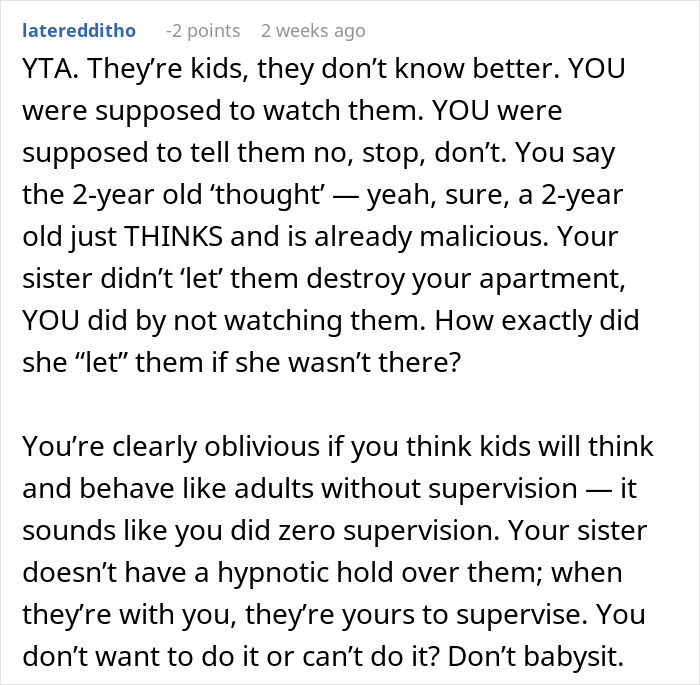Finding childcare as a single parent can be challenging. Statistics show that single parents rely on weekly childcare more than households with two parents. Not every single parent can afford to pay for childcare, and that’s where family members come in. But lately, few want to do it at all.
This woman, for example, refused to babysit her sister’s kids again after they “trashed” her place. She shared her story online and asked people whether her stance was as unreasonable as her sister and the rest of the family were making it out to be.
This aunt had to deal with a trashed apartment after babysitting her sister’s kids

Image credits: deriabinanatalia / envatoelements (not the actual photo)
When she brought it up to her sister, all she got was the good old “Kids will be kids”
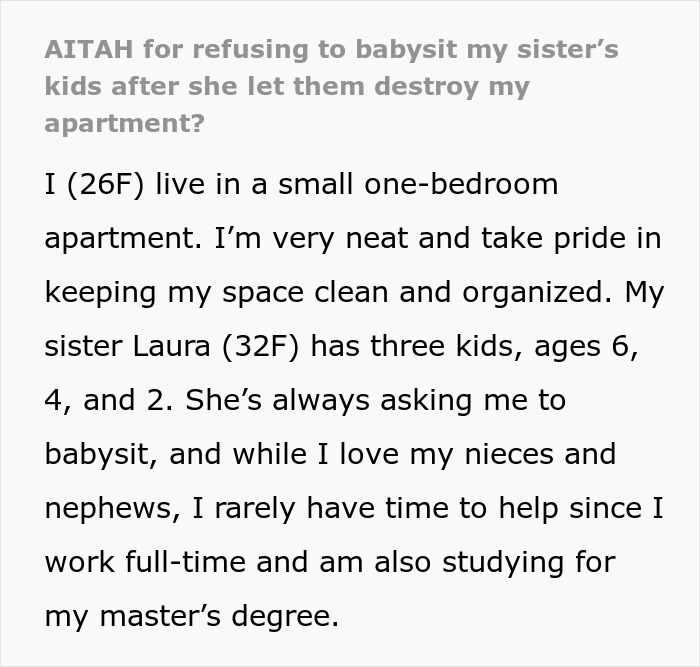
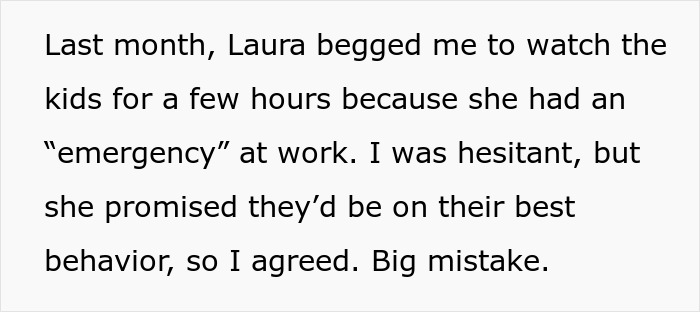
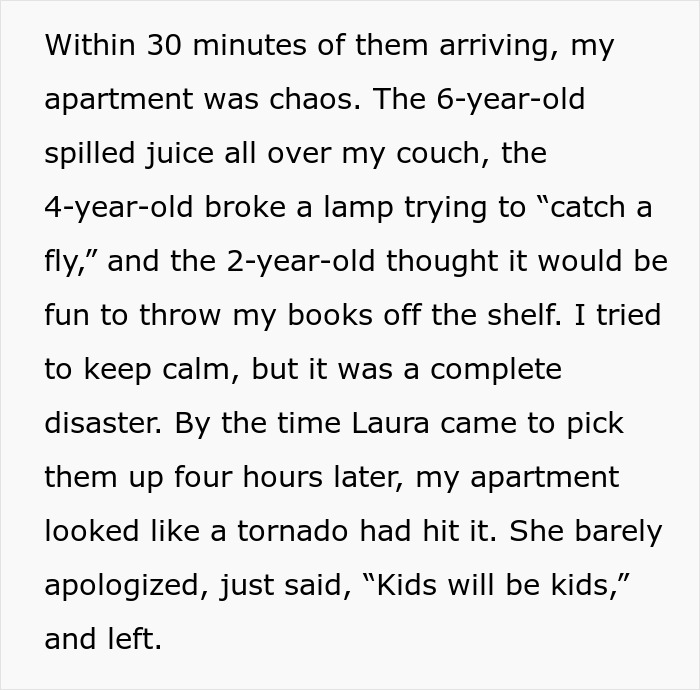
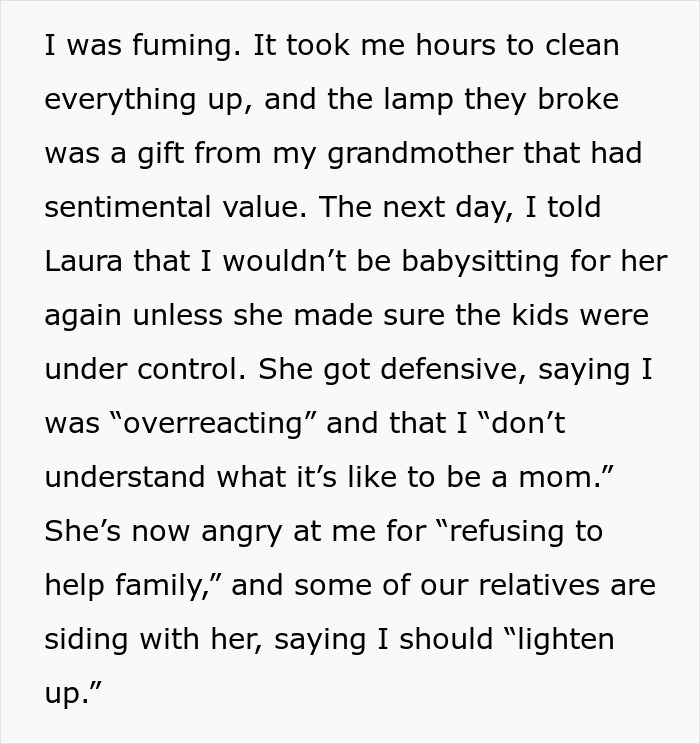

Image credits: Drazen Zigic / freepik (not the actual photo)
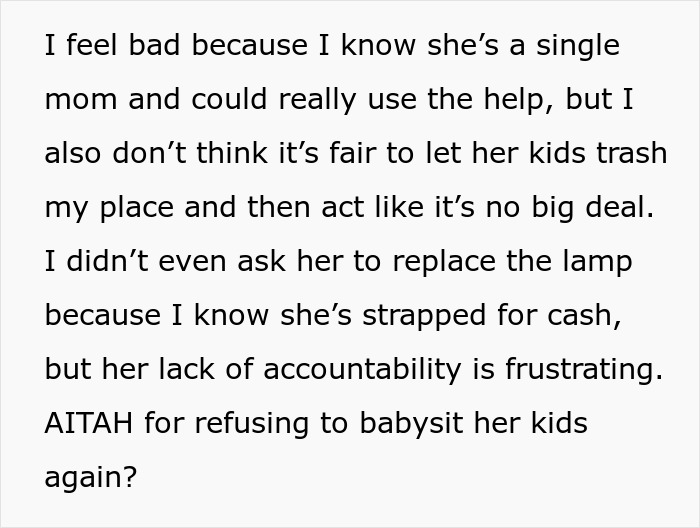
Image credits: Infamous_Angle_385
Babysitting may seem like an easy job, but looking after small children can be a real challenge
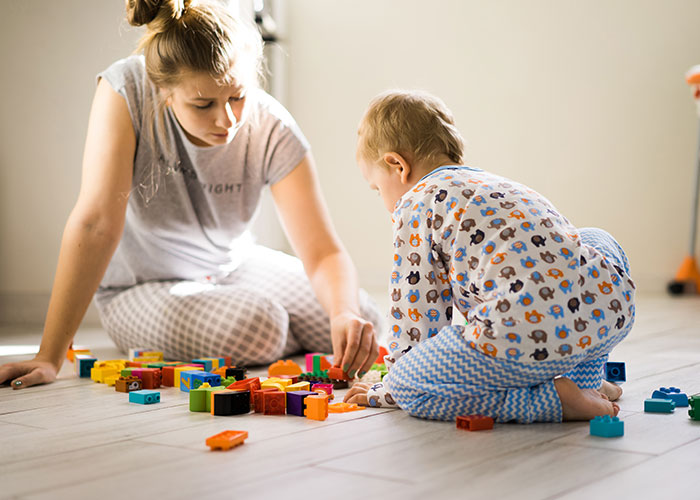
Image credits: Kireyonok_Yuliya / freepik (not the actual photo)
There were many different opinions about who was at fault in this story. Although the majority agreed that the woman by no means should feel obliged to babysit again, some pointed out that she was simply not ready. The OP writes in her story that she loves her nieces and nephews and would probably babysit again if they would be, like the mother promised, “on their best behavior.”
But, in some cases, the reality is that children up to age six can be real mess-makers. As one commenter noted, “You literally have to keep an eye on them.” Another Redditor made a brilliant observation: “You need arms like an octopus.”
Asking family members to babysit has its advantages: it’s definitely less costly and parents don’t have to make any special arrangements. Parents also might feel the children are safer with a family member than with a stranger.
However, babysitting isn’t a walk in the park, especially when there are three kids! Experts often have guidelines for first-time professional babysitters. So, it’s no surprise that the OP had a hard time, considering she’s not experienced in childcare.
Professional babysitters often have to complete courses where they learn age-specific knowledge and how to handle common kid behaviors like tantrums, separation anxiety, and bedtime battles.
“It really is a responsibility to take care of someone so young; so many things could go wrong,” Leanne Hoekstra, a babysitting course instructor and author of “The Ultimate Babysitting Course Manual,” told Care.
Ultimately, small kids need a lot of attention and care. Perhaps some netizens are right to say that the OP was naive to expect that three kids under the age of six would behave like adults. Still, the sister’s blasé attitude towards the damages is worrying at best, and the author is under no obligation to babysit for her again if she doesn’t want to.
The best ways to handle misbehaving children are to distract them and childproof their surroundings

Image credits: rawpixel.com / freepik (not the actual photo)
Children misbehave – that’s just the unfortunate reality. While they are unruly more with their parents than with relatives or babysitters, they might still misbehave. The experts at Michigan State University Extension recommend being ready to meet the challenges that might arise while babysitting in any context.
First, it’s helpful to childproof the surroundings. Perhaps the biggest mistake the OP made was to leave any precious belongings that the kids could get into out in the open. It’s a good prevention strategy: removing hazards is easier than constantly chasing after the kids.
Children often misbehave because they seek attention or feel bored. Since small children have short attention spans, a babysitter’s best bet is to divert their attention elsewhere. Be it toys, storytime, or even screens: anything that doesn’t involve destruction.
Michigan State University Extension advises ignoring the bad and positively reinforcing the good. Notice when they’re doing something good, like sharing toys or eating in front of the kitchen table instead of the sofa, and praise them. Granted, that’s mostly for the six-year-old since neither the four-year-old nor the two-year-old can fully grasp that.
Many people said the woman wasn’t at fault, but, if she babysits again, she should do so at her sister’s place


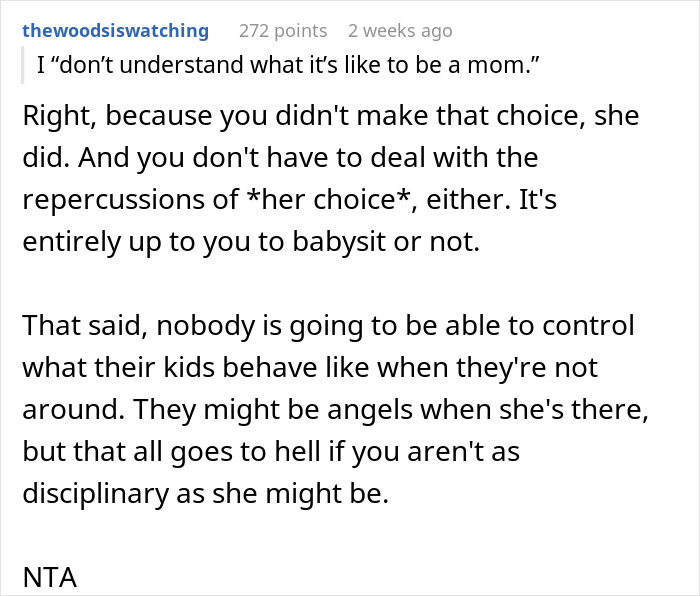


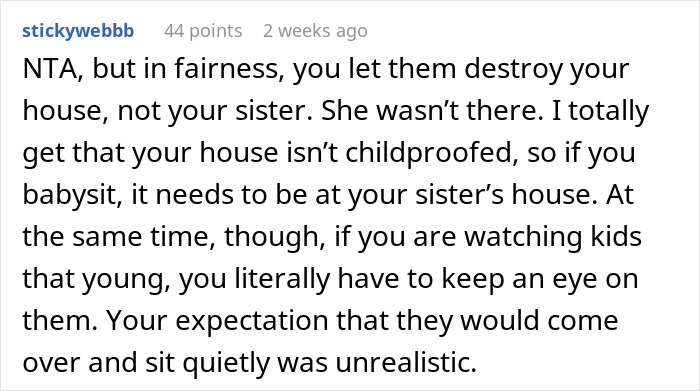

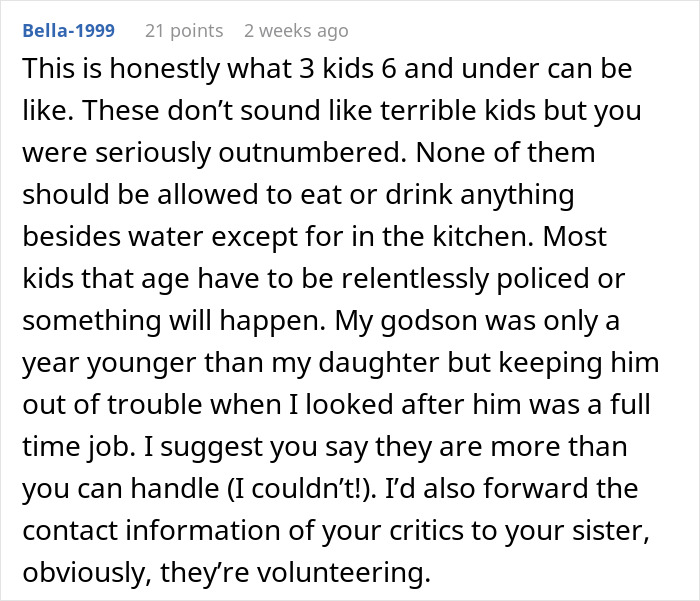


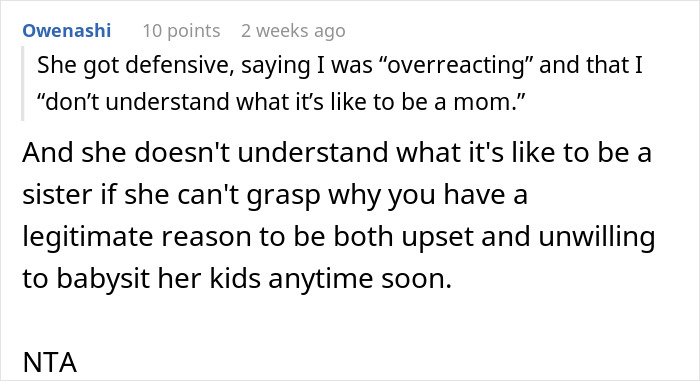
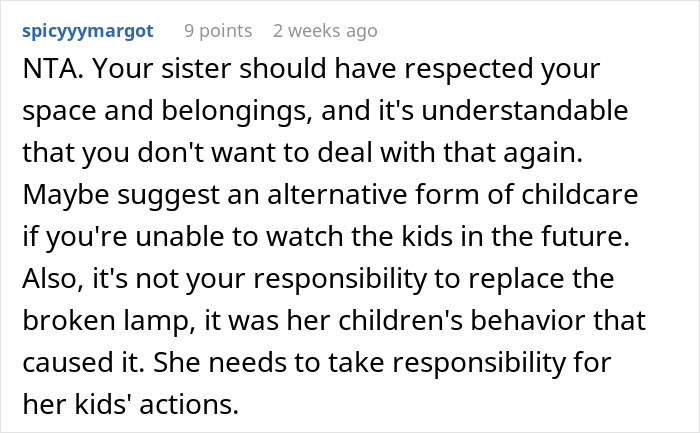
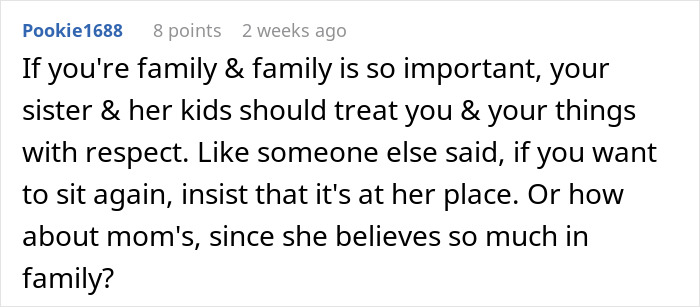

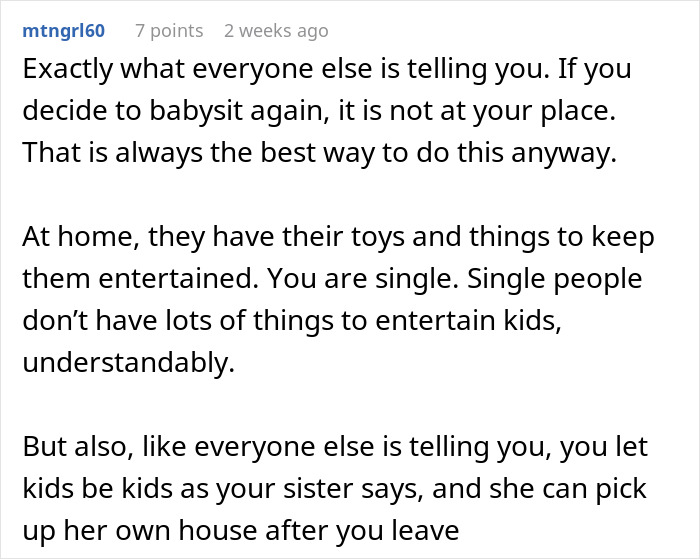

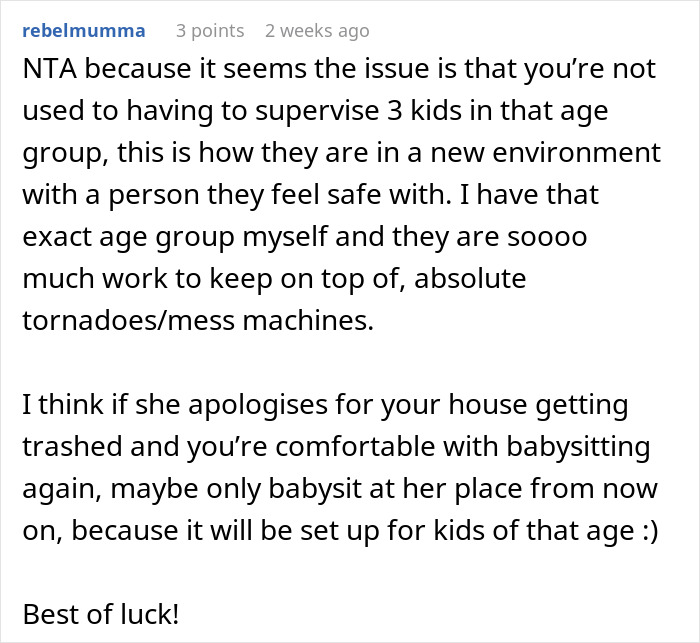
However, some thought that it was her own fault for expecting little kids to behave like adults
